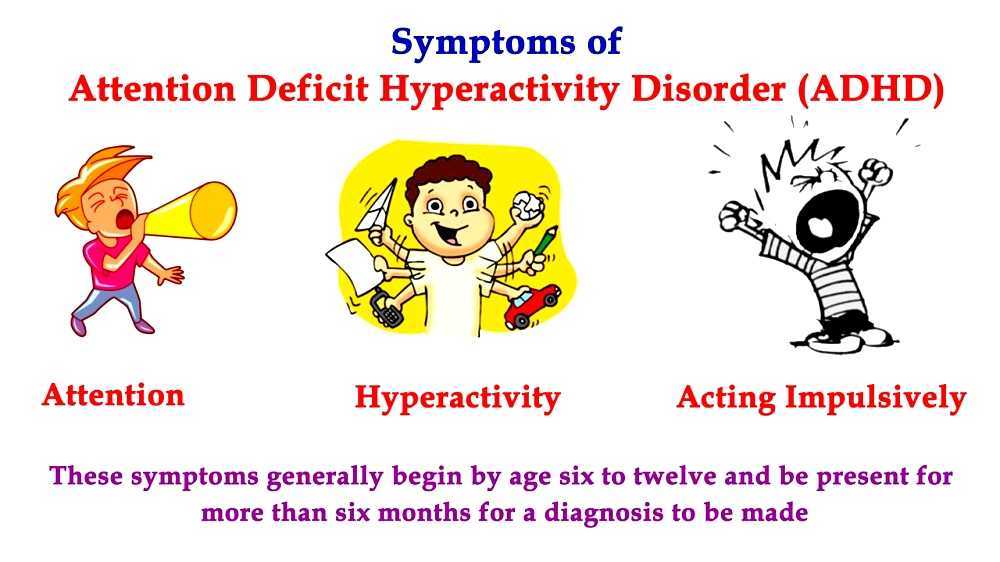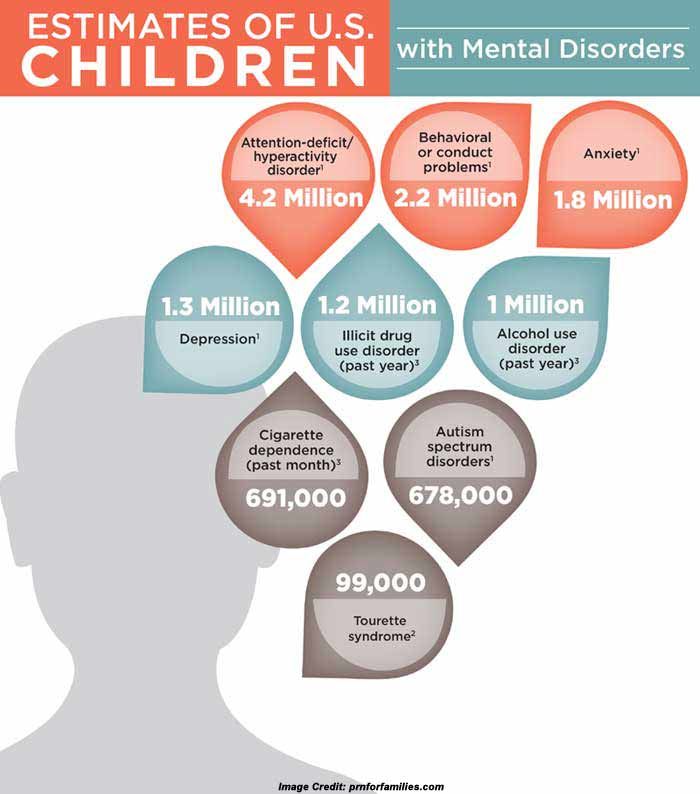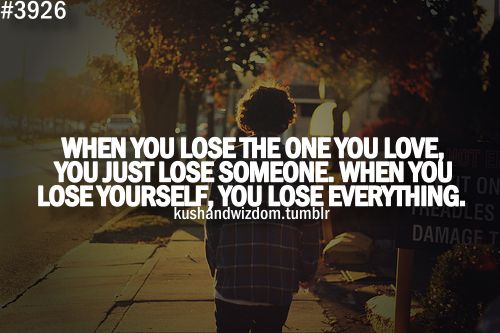Children copy parents behavior
Young children learn by copying you!
Carrie Shrier, Michigan State University Extension -
Infants and toddlers are the world’s best “copy cats.” Young children learn from their parents, caregivers and even from watching television.
Young children are paying attention to the world around them every waking moment. Photo credit: Pixabay.Young children are paying attention to the world around them every waking moment. They watch how their parents and caregivers talk, eat, react to situations and interact with others. You are your child’s very first teacher! Infants and toddlers are amazing little students, remembering what their parents and caregivers do and say days and weeks later.
You aren’t their only teacher, however, young children’s interactions with family, friends, babysitters and even what they observe on television is teaching children much more than you may realize. Michigan State University Extension reminds you how important it is to think carefully about what you say and do in front of your children, as well be aware of what television and media they observe, to be sure that what they are learning is what you want them to learn!
Research shows that young children are watching an average of three hours a day of television. Caregivers will often use television and movies to keep children occupied and many families report leaving the TV on all day long, even as the family moves on to other activities such as bedtime and meal times. Do you think your children are learning from their television viewing? Research says that they are! In fact, with as little as 20 seconds of television viewing toddlers as young as 14 months are able to repeat actions observed during videos. What do you think a young child could learn in an hour of viewing?
What do you think a young child could learn in an hour of viewing?
Young children can, and will, copy what they see happen on television. In an experiment done to see if children imitate what they see on TV, researchers tested 120 toddlers that were 14 or 24 months of age. Half of the children watched a short video of a stranger playing with a new toy by pulling it apart in the same motion three times. The other half of the children were split into two groups. One group watched a video of the stranger playing with the toy without taking it apart, and the other half did not watch a video at all. Of the 24 month olds that saw the video of the toy being taken apart, 90 percent took the toy apart just like the person in the video but of those would didn’t see the person take the toy apart, only 20 percent took it apart on their own. This is a clear sign that two year olds can imitate what they see on TV. In the younger children, 65 percent of those who saw the video of the toy being taken apart took it apart in the same way while only 30 percent took the toy apart on their own. This research is clear that babies as young as 14 months old will copy what they see on television and that children that are two years old are more likely to be imitating what they see, even when it is a stranger.
This research is clear that babies as young as 14 months old will copy what they see on television and that children that are two years old are more likely to be imitating what they see, even when it is a stranger.
It’s clear that your young children are learning by copying you! What can you as a parent do? Here are a few helpful tips from MSU Extension:
- Remember that your children are watching and copying everything you do. Choose your words and actions wisely. Be very careful about what you do and say. Set a positive example for your children, even when they are infants and toddlers.
- Think of your home as your child’s first classroom. What do you want them to learn? Young children are learning from the “teachers” or people in your home right from the start.
- Include your child in your every day activities and see those activities as an opportunity for learning.
- Limit television. Remember that television is teaching your children.
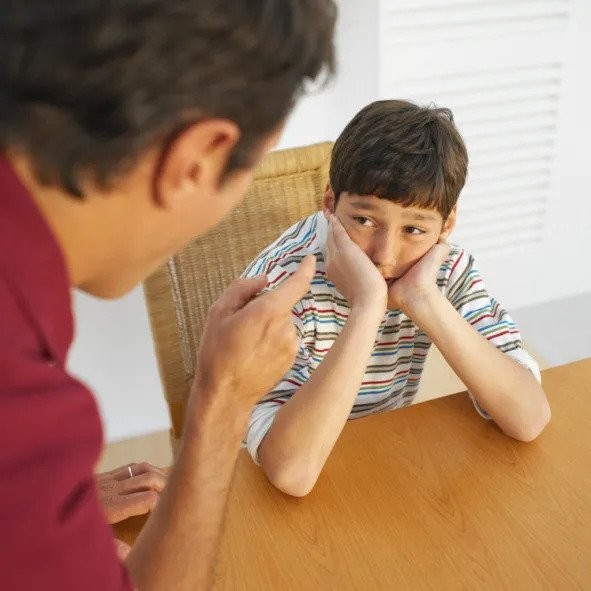 What might they watch and copy later? Think about what they are viewing and co-view with them whenever possible.
What might they watch and copy later? Think about what they are viewing and co-view with them whenever possible.
Every person your child sees is teaching them something. Enjoy their amazing learning abilities! Infants love to copy facial expressions. In fact, babies as young as just a few hours old can copy an adult who sticks their tongue out. If you smile, they will try to smile back. As babies get older, they get even better at copying your actions. Holding the phone like you do, brushing your hair, mimicking your actions, and copying your words and tone of voice.
Remember, you are your child’s first teacher. Our children watch and learn from us every day. Every waking hour your child is learning something. By being careful about what you say and do, you can be sure you are teaching your child what you want them to learn and begin to set them on the path to school and life success!
This article was published by Michigan State University Extension. For more information, visit https://extension.msu.edu. To have a digest of information delivered straight to your email inbox, visit https://extension.msu.edu/newsletters. To contact an expert in your area, visit https://extension.msu.edu/experts, or call 888-MSUE4MI (888-678-3464).
For more information, visit https://extension.msu.edu. To have a digest of information delivered straight to your email inbox, visit https://extension.msu.edu/newsletters. To contact an expert in your area, visit https://extension.msu.edu/experts, or call 888-MSUE4MI (888-678-3464).
Did you find this article useful?
Here is What to Know
Developmental psychologists have always known children learn by imitating adults.
Now, a new study of Australian preschoolers and Kalahari Bushman children finds that a particular kind of imitation — over-imitation, in which a child copies everything an adult shows them, not just the steps that lead to some outcome — appears to be a universal human activity.
Researchers believe the work sheds light on how humans develop and transmit culture.
Scientists “have been finding this odd effect where children will copy everything that they see an adult demonstrate to them, even if there are clear or obvious reasons why those actions would be irrelevant,” says psychologist Mark Nielsen, of the University of Queensland in Australia. “It’s something that we know that other primates don’t do.” If a chimpanzee is shown an irrelevant action, they won’t copy it — they’ll skip right to the action that makes something happen.
“It’s something that we know that other primates don’t do.” If a chimpanzee is shown an irrelevant action, they won’t copy it — they’ll skip right to the action that makes something happen.
But it’s not clear that the results found in child psychology research apply to all people, Nielsen says. This research is usually done with children who live in Western cultures, whose parents are well-educated and middle- to upper class. And these parents are constantly teaching their children. But parents in indigenous cultures generally don’t spend a lot of time teaching.
“They may slow what they’re doing if the child is watching, but it’s not the kind of active instruction that’s common in Western cultures,” says Nielsen. So he teamed up with Keyan Tomaselli, an anthropologist at the University of KwaZulu-Natal in Durban, South Africa, who has worked for decades in Bushman communities in southern Africa.
Their study is published in Psychological Science, a journal of the Association for Psychological Science.
For the experiments, the children were shown how to open a box — but in a complicated way, with impractical actions thrown in. For example, the adult would drag a stick across a box, then use a stick to open the box by pulling on a knob — which is a lot easier if you just use your fingers.
Most of the children copied what the adults did, even if they’d been given the opportunity to play with the box first and figure out how it worked. This was just as true for Bushman children as for the Australian children.
But aren’t the children just following the rules of what appears to be a game? “That kind of is the point,” says Nielsen.
“Perhaps not a game, but certainly, when I demonstrate the action, it’s purposeful. So from the mind of a child, perhaps there’s a reason why I’m doing this.” This willingness to assume that an action has some unknown purpose, and to copy it, may be part of how humans develop and share culture, he says.
“Really, we see these sorts of behaviors as being a core part of developing this human cultural mind, where we’re so motivated to do things like those around us and be like those around us.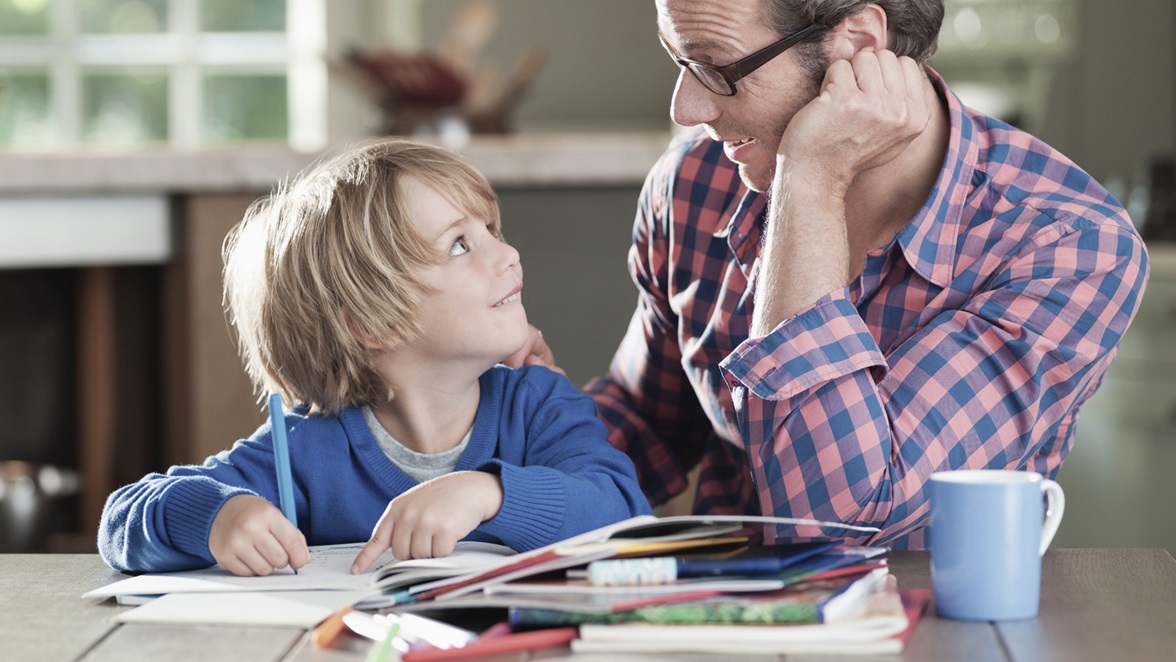 ”
”
According to HealthyChildren.org’s website, “Children learn by watching everyone around them, especially their parents. When you use manners and good coping strategies, you teach your children to do the same:”
“Point out sharing among adults. Children often feel that they are the only ones who have to “use your manners,” “share,” and “take turns.” So when adults share, point it out to your children. For example: “Daddy is sharing his drink with Mommy. Good job sharing, Daddy!””
“Model good ways to calm down. Teach your children how to calm down when they are upset or frustrated. For example, if you are frustrated about sitting in traffic, you might say: “Mommy is really frustrated right now. Please help me calm down by taking 10 deep breaths with me.””
“Teach children to say how they feel. If you are really frustrated, you might want to say, “You are driving me crazy right now.” Instead, try to express your actual feelings: “Mommy is really frustrated right now.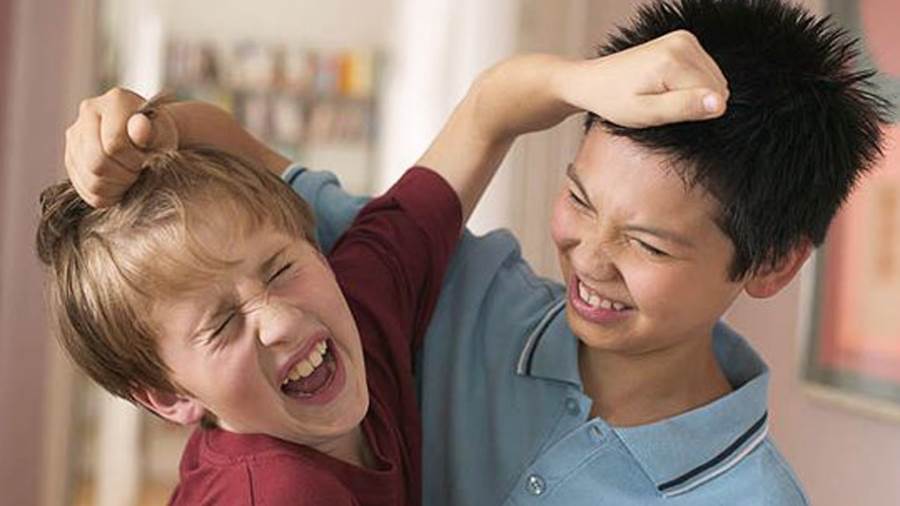 ” This teaches children to say what they feel instead of making critical or hurtful statements. Then help your children do this when they are upset. For example: “It looks like you are feeling sad.””
” This teaches children to say what they feel instead of making critical or hurtful statements. Then help your children do this when they are upset. For example: “It looks like you are feeling sad.””
Source: Association for Psychological Science
Children are a reflection of their parents
All parents dream of polite, obedient and intelligent children so that they have a happy, bright childhood. Where, then, do capricious and naughty children come from in families? It should be noted that naughty children do not exist - just parents do not listen to their child. After all, a whim is a reaction to a lack of understanding on the part of parents. Naughty are those children whose parents make mistakes in upbringing or do not do it at all. “If you want to know about parents, look at their child,” says folk wisdom. Having matured, the child naturally reproduces the behavior and lifestyle of the parents. And very often you can observe that they bring up their children according to the same scenario that was in the parental family. Therefore, psychologists say: do not raise children, they will still be like you, but educate yourself. After all, children are incredibly observant and absorb everything like a sponge: they catch the behavior, intonations, reactions of adults, copy facial expressions, gestures, words and emotions. And this happens on a subconscious level, because the child strives to be like his parents. Parents who are busy with work, home life, solving pressing life problems sometimes do not notice this.
Therefore, psychologists say: do not raise children, they will still be like you, but educate yourself. After all, children are incredibly observant and absorb everything like a sponge: they catch the behavior, intonations, reactions of adults, copy facial expressions, gestures, words and emotions. And this happens on a subconscious level, because the child strives to be like his parents. Parents who are busy with work, home life, solving pressing life problems sometimes do not notice this.
A child is a mirror of the soul of the parents. Looking into his eyes, you will definitely see yourself, your reflection. So do it so that you will never be ashamed to look at them . If every person starts thinking about all these problems, then the situation in our society will improve significantly. There will be less misunderstanding and violence, mistrust and deceit. Between people, such feelings as love and compassion, patience and respect will flare up again. And our children will definitely become better than ourselves. It will definitely be, but later. In the meantime, these are just thoughts, dreams and ideas. Spend more time with your family, have family dinners, find common hobbies, walks or trips together in nature. The main thing is desire [1].
It will definitely be, but later. In the meantime, these are just thoughts, dreams and ideas. Spend more time with your family, have family dinners, find common hobbies, walks or trips together in nature. The main thing is desire [1].
Nowadays, there are a lot of mothers raising children alone. And this trend, unfortunately, is growing. There is even a certain concept “A woman and a mother, and a father for her children and they don’t need a father ...” Why is this happening in modern society? A woman now has equal rights with a man, they work in absolutely all areas on an equal footing with the opposite sex. It should be noted that today's women are successful. Women of our time are self-confident, consciously relate to the creation of a family, the birth of children, etc. That is, it should be noted that children can grow up with their mother, without a father. And for a woman it is not a problem, but for a child it is not. Every child raised only by his mother dreams of having a father, and this is a psychological and pedagogical problem, because for the harmonious development of a child, the presence of both parents is necessary.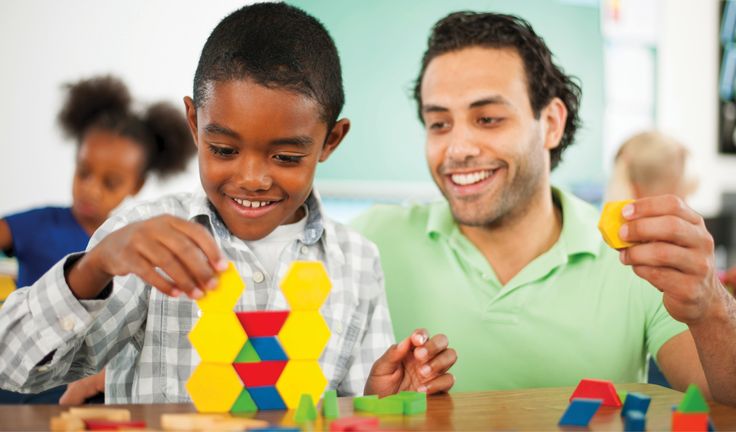 From the father, the child takes an example of masculinity, masculine demeanor, etc. The father plays a big role in raising children, but often for a modern child, dad is the one who “goes to work”, “earns money”, “swears”, “punishes”. Dad becomes some kind of mythical, incomprehensible creature, which is also hard to reach. He goes to work early in the morning, does something serious all day, and in the evening he comes tired, that his strength is only enough for a newspaper or TV, and the child so wants to feel that he is needed not only by his mother, but by his father. Sometimes the "love" of the father for the child is expressed, rather than in emotional support, but in the purchase of a new toy or gadgets, as if paying off for the lack of attention to the child.
From the father, the child takes an example of masculinity, masculine demeanor, etc. The father plays a big role in raising children, but often for a modern child, dad is the one who “goes to work”, “earns money”, “swears”, “punishes”. Dad becomes some kind of mythical, incomprehensible creature, which is also hard to reach. He goes to work early in the morning, does something serious all day, and in the evening he comes tired, that his strength is only enough for a newspaper or TV, and the child so wants to feel that he is needed not only by his mother, but by his father. Sometimes the "love" of the father for the child is expressed, rather than in emotional support, but in the purchase of a new toy or gadgets, as if paying off for the lack of attention to the child.
And the mother represents for the child the world of tenderness, care, love, security and much more. Therefore, children should be brought up, as far as possible, in a complete family. So it was, is and will be. Parents should be what they want to see their children - not in words, but in deeds. They should teach their children by the example of their lives. The richest legacy that parents can leave their children is a happy childhood, with fond memories of father and mother. It will illuminate the coming days, keep them from temptations and help in the harsh everyday life when the children grow up and leave their parental home. The duty of every parent is to prepare them for life, for any trials that will meet on the path of life. As long as the parents are alive, the child always remains a child and must respond to the parents with love and respect. For a real mother, everything that her child is interested in is important. She always listens willingly about his adventures, joys, disappointments, achievements, plans. For the sake of the future of your children, it is still possible to partially change your life, you just have to work hard on yourself.
They should teach their children by the example of their lives. The richest legacy that parents can leave their children is a happy childhood, with fond memories of father and mother. It will illuminate the coming days, keep them from temptations and help in the harsh everyday life when the children grow up and leave their parental home. The duty of every parent is to prepare them for life, for any trials that will meet on the path of life. As long as the parents are alive, the child always remains a child and must respond to the parents with love and respect. For a real mother, everything that her child is interested in is important. She always listens willingly about his adventures, joys, disappointments, achievements, plans. For the sake of the future of your children, it is still possible to partially change your life, you just have to work hard on yourself.
From the above, the following conclusions can be drawn:
- A married couple must consciously come to the birth of children;
- Children should grow up in love;
- Features of raising children in each family are individual;
- And always remember that parenthood is not only happiness, but also a great responsibility to your child.
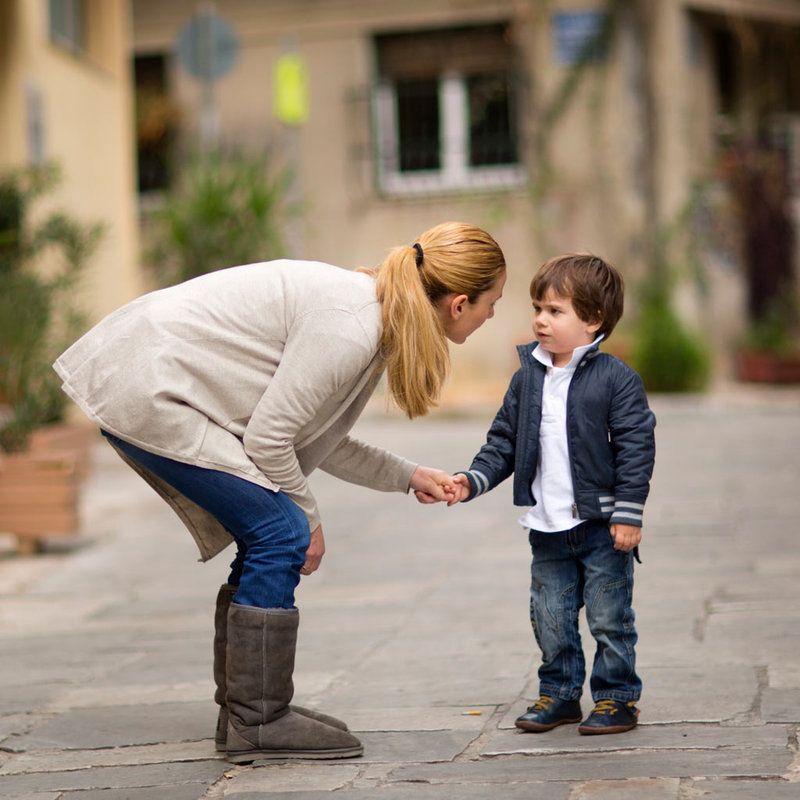
In 2016, the draft law “On Responsible Parenthood” was adopted and the reaction to its adoption was ambiguous in our society due to the fact that there were many illegal actions against children by parents and an attempt was made to regulate it [2].
Parents and children
WHY DO CHILDREN STEAL? AND HOW TO RESPOND TO IT?
A child as an image of parents
Have you noticed how much children look like their parents? Both externally and internally. Character, gait, timbre of voice, reaction to problem situations - everything reminds of a parent!
Looking into the eyes of mom or dad, the baby sees his "I", feels his self-worth. Parents for him are not only loved ones, but also a standard, an example of organizing home life, communication skills, ways of regulating emotions.
Children are like a sponge absorbing positive and negative behavior, habits of parents, so the basis of raising children is their own example of parents!
For example, if a mother is an emotional woman and shouts at her family, then one cannot hope that the child will speak calmly.
A child is a mirror of the family, which, if you look closely, reflects everything: personal problems of parents, marital, parent-child relationships, contradictions and conflicts, and to be more precise, children are a mirror of parental problems.
Unfortunately, most often this mirror is crooked, and the “curvature” manifests itself in the form of uncontrollable and negative behavior of the child. These manifestations can be mitigated or eliminated, which is facilitated by positive changes in family relations, work with the intrapersonal problems of the parents themselves, which has a beneficial effect on the formation of the child's personality, because the behavior of adults always affects children who only copy the model of communication and behavior adopted in their family .
Unfortunately, most parents are unwilling to admit that they have problems, much less work on themselves and their shortcomings. Very often, such parents require the psychologist to work to correct the child's behavior.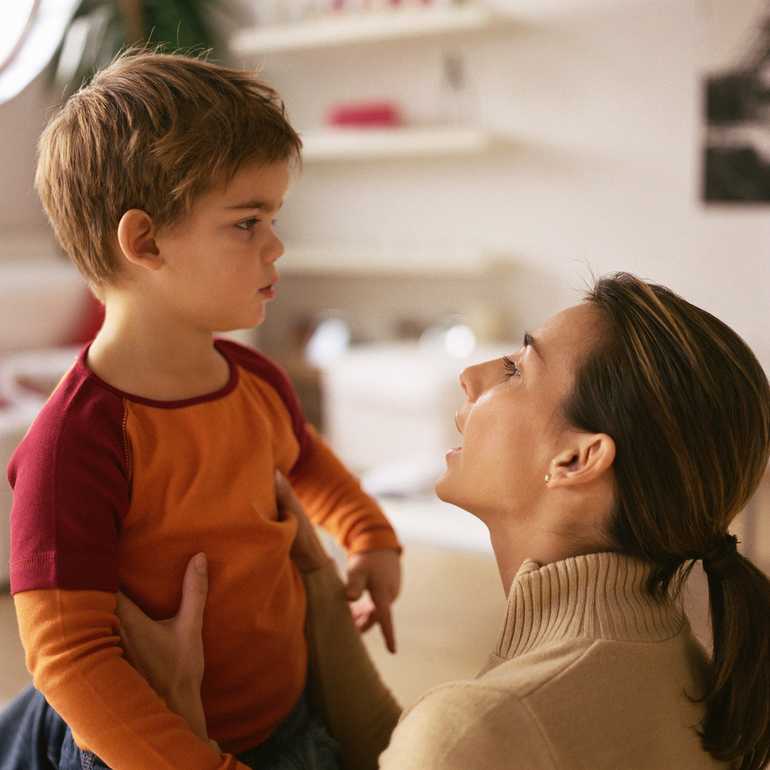 But the more the psychologist works with the younger generation, the more he becomes convinced that there are no “difficult” children among them, just that many children need a healthy environment!
But the more the psychologist works with the younger generation, the more he becomes convinced that there are no “difficult” children among them, just that many children need a healthy environment!
Sending your child to training while you sit in front of the TV? Nothing will come out. Do not tell your child about the benefits of a healthy lifestyle, but become an example for him. Children subtly feel such substitutions and take parental behavior as a basis! Develop with your child, be interested in his hobbies, share them. Learn to listen and hear your child, be patient. Let him be himself! Teach your child to define the norms of acceptable and unacceptable. Give examples from your own life. Support and love, even when the child is wrong. Only communication in the family will help to raise a child as a happy person in the format of care and love, where 80% is approval and love, and 20% is criticism! Only criticism and negative attitudes of parents will not lead to the successful development of the child.
One of the problems is the lack of role models in the environment of the child.
At the age of 12-14, a teenager begins to perceive society in a new way, using imitation as one of the ways of learning. This helps him acquire social skills, abilities, take a special position in relations with adults, express himself, join a peer group.
In adolescence, family members, older children, fictional characters, famous people can become role models. The choice of an ideal is based on the authority of a person, his social status, attachment to someone, the need to be included in a certain company, and even fashion trends in clothing, appearance, behavior, and manner of speaking.
Unfortunately, family members or peers may not be the best example that will affect the child's way of thinking, behavior and communication.
The Center employs professionals who will help resolve any difficulties. Various programs and trainings are being implemented aimed at forming the right parental attitudes and strengthening child-parent relationships.

